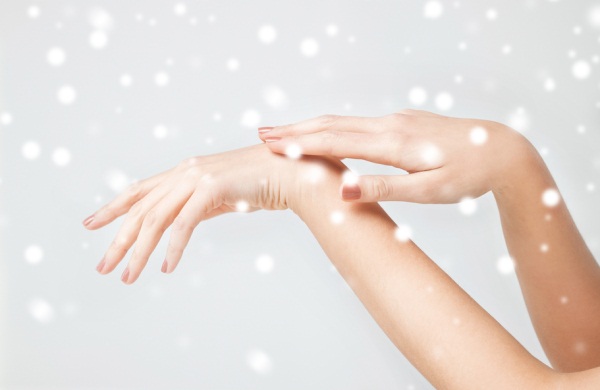When you’re warm and cosy in your living room, winter never seems that bad. However, the cold days combined with the dry warmth of the central heating mean that dry skin is exceptionally common. Although dry hands, feet and faces are really common, some people really suffer as their skin cracks, blisters and becomes inflamed and irritated.
It doesn’t matter what method you use to warm your home or how well wrapped up you are when you leave the house, it’s the constant extreme temperature changes that your skin experiences throughout the winter which cause this negative effect.
If this sounds like something you suffer with, then it sounds like you need a little extra help to get your skin through the winter months in top condition.
Specialist
Although you might not think it’s necessary to visit a specialist when it comes to looking after your skin, they’ll be able to give you a detailed analysis of your skin type and tell you where you’re going wrong with your current skin care regimen as well as providing you with information and product recommendations that will help you put it right.
A lot of people hold the view that a dermatologist will only recommend high end brands and you will therefore have to spend a lot of money on the products that they’ve recommended. However, this really isn’t the case as they will only recommend the products to which your skin is likely to respond well, meaning that there’s just as much of a chance that the cheaper products will be just as good, if not better.
Moisturise more
Although the moisturiser that you use throughout spring and summer might be great for your skin, the likelihood is that it’ll need to be replaced for something thicker and richer during the winter. Oil-based moisturisers are much better for winter weather as the moisture from water-based creams is absorbed straightaway. If you choose an oil-based moisturiser then it’ll create a layer of protection over your skin which will help to make sure that moisture is retained by the skin.
Not all oils are beneficial to your face though, so make sure you choose your moisturiser carefully. A lot of nighttime moisturisers are much thicker and richer than daytime ones and they’re usually oil-based too. When looking over the ingredients, keep an eye out for products that use avocado oil, almond oil or primrose oil, as they won’t clog the pores.
Sun protection
Although it might not seem important, it’s imperative to wear sun protection all year round. Just because the temperatures aren’t as high in the winter doesn’t mean that the sun isn’t damaging to your skin. In fact, the combination of natural light and snow glare means that it can be just as dangerous as it is during the summer and therefore sunburn is still possible. In order to protect yourself from the winter sun, you should apply a high factor sun screen to any skin that’s exposed – most commonly the face – during winter, before you leave the house.
Hands
Your hands are, in some respects, much more delicate than other areas of your body because the skin is much thinner, which means that it can be difficult to keep them moist during cold, dry weather. Your hands are often the first area to suffer when it’s cold and if you don’t take the right precautions, they’ll not only become dry, they’ll also become sore and quite often cracked. In order to avoid this, it’s important to use a hand moisturiser throughout the day and to wear gloves when you’re out in the cold.
Feet
Your feet are also likely to suffer a lot through the winter because they’re always cooped up in thick socks and big winter boots. Because of this, your feet require more protection, so along with regular exfoliation in order to remove dead skin cells, you should make sure you use a rich moisturiser – preferably one that contains petroleum jelly – in order to keep your feet feeling soft, smooth and supple.
Hot baths
When you’ve been out in the cold all day, a long hot soak in the bath sounds like pure bliss. However, it’s really not good for your skin and should be avoided. The hot water of a bath or shower breaks down the protective fatty barrier in your skin which could consequently cause your skin to lose moisture.
Using lukewarm water and only staying in the bath or shower for the amount of time that’s necessary will help to prevent this from happening.
Following these few helpful tips will help ensure your skin stays supple, smooth and soft throughout winter and doesn’t succumb to the dry weather conditions.

